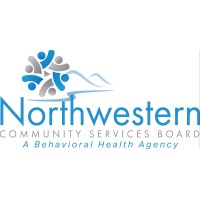Company Details
california-department-of-public-health
3,928
84,366
92312
http://www.cdph.ca.gov
0
CAL_2920280
In-progress

California Department of Public Health Company CyberSecurity Posture
http://www.cdph.ca.govAt California Department of Public Health (CDPH), our mission is to advance the health and well-being of California's diverse people and communities. Through the leadership of Director Erica Pan, MD, MPH, we strive to be the best at getting better and becoming a learning, healing and impactful organization. CDPH includes centers, divisions and offices that administer more than 200 programs and services that range from infectious disease control and prevention to laboratory services, environmental health, food safety, emergency preparedness, health equity, vital records and statistics, and more. These programs and services, implemented in collaboration with local health departments and state, federal and community partners, impact the lives of every Californian and visitor to the state 24 hours a day, seven days a week. Learn more at http://www.cdph.ca.gov
Company Details
california-department-of-public-health
3,928
84,366
92312
http://www.cdph.ca.gov
0
CAL_2920280
In-progress
Between 700 and 749

 CDPH Global Score (TPRM)
CDPH Global Score (TPRM)XXXX

Description: The California Department of Public Health reported a data breach on May 8, 2012, involving the theft of a survey binder containing personal and medical information after it was left in an unattended vehicle. Approximately 1 individual was affected, and the compromised information included name, date of birth, age, medications, room number, and medical record number.
Description: The California Department of Public Health (CDPH) reported a data breach on May 8, 2013, involving a roll of microfiche containing approximately 2,000 birth records from 1974 found at an unsecure non-State location. The affected records include names, addresses, Social Security numbers, and some medical information, potentially impacting around 6,000 individuals born in specific months and counties in California.
Description: The California Department of Public Health reported a data breach involving the Women, Infants, and Children (WIC) Program on September 26, 2013. The breach occurred on August 20, 2013, when a Madera County WIC employee mistakenly disclosed personal and medical information, including names and expected delivery dates, to another participant. The number of individuals affected is unknown.
Description: The sensitive medical information of citizens of California was exposed by a misconfigured database managed by the California Department of Public Health. The misconfiguration resulted from an error made by a third-party contractor and led to the breach of names, dates of birth, addresses, and Covid-19-related health information of the citizens. The department set up a dedicated call center to help out the people of California affected by the breach.
Description: On May 23, 2018, the California Department of Public Health (CDPH) reported a data breach that occurred on March 12, 2018, involving the theft of documents and a laptop from a contractor's vehicle. This incident potentially exposed personal and health information such as names, Social Security numbers, and health insurance information. The breach highlights the vulnerability of sensitive data when handled by third-party contractors and the importance of robust security measures to protect personal information.


No incidents recorded for California Department of Public Health in 2025.
No incidents recorded for California Department of Public Health in 2025.
No incidents recorded for California Department of Public Health in 2025.
CDPH cyber incidents detection timeline including parent company and subsidiaries

At California Department of Public Health (CDPH), our mission is to advance the health and well-being of California's diverse people and communities. Through the leadership of Director Erica Pan, MD, MPH, we strive to be the best at getting better and becoming a learning, healing and impactful organization. CDPH includes centers, divisions and offices that administer more than 200 programs and services that range from infectious disease control and prevention to laboratory services, environmental health, food safety, emergency preparedness, health equity, vital records and statistics, and more. These programs and services, implemented in collaboration with local health departments and state, federal and community partners, impact the lives of every Californian and visitor to the state 24 hours a day, seven days a week. Learn more at http://www.cdph.ca.gov


We are a Healthcare Data Analytics company. We work with pharma and patients to help identify the best doctors and other solutions to solve healthcare problems. Our latest product MediFind, medifind.com helps patients identify solutions to medical diseases. A professional version based on this data

Northwestern Community Services Board offers an array of outpatient, case management, day support, residential and emergency programs that are designed to enhance the quality of life for both children and adults affected by emotional/behavioral disorders, mental illness, substance use, and intellect

We are developing innovative solutions that lead to better health and a learning healthcare system by empowering people with their digital health data. Hugo is an easy-to-use, cloud-based solution that enables the secure acquisition, harmonization, and utilization of health-related data from elec

The mission of the New Jersey Environmental Health Association is to support the professional growth of environmental health specialists, provide a unified and informed voice in the development of public health practice and policy, and enhance the ability of members to aptly promote environmental an

Public health is about building bridges and bringing people together to create healthier communities. We look at the events and circumstances impacting health—locally and globally—and ask, “How can I make a positive difference?” Many people want to help others but aren’t sure where to start. Public

O HEMOSC é o Hemocentro Coordenador de Santa Catarina, responsável por todas as ações de captação de doação voluntária de sangue e aféreses e uso de sangue para fins terapêuticos. Além disso, tem a atribuição de garantir a qualidade e o controle da coleta, qualificação do doador, pro
.png)
In a year that began with devastating wildfires, California is proposing a disclosure regime to address the long-term solvency of insurers.
It can be very overwhelming scrolling through job board after job board in search of a position that fits your wants and needs.
California Attorney General Rob Bonta plans to hire an artificial intelligence “expert” as his office becomes increasingly involved in legal...
The HIPAA Journal has compiled healthcare data breach statistics from October 2009, when the Department of Health and Human Services (HHS)...
A small school district in rural Northern California sued the U.S. Department of Education on Wednesday night, seeking to restore more than...
On September 23, 2025, the California Office of Administrative Law (OAL) approved regulations under the California Consumer Privacy Act...
The City of San José is excited to invite government employees, university faculty and staff to the third annual Cybersecurity Awareness Day...
The fired chief of California's cybersecurity agency is speaking out about his termination and sounding the alarm over state-wide security...
GREENWIRE | SACRAMENTO, California — California will halve its production of steelhead trout and chinook salmon at a major fish hatchery...

Explore insights on cybersecurity incidents, risk posture, and Rankiteo's assessments.
The official website of California Department of Public Health is http://www.cdph.ca.gov.
According to Rankiteo, California Department of Public Health’s AI-generated cybersecurity score is 725, reflecting their Moderate security posture.
According to Rankiteo, California Department of Public Health currently holds 0 security badges, indicating that no recognized compliance certifications are currently verified for the organization.
According to Rankiteo, California Department of Public Health is not certified under SOC 2 Type 1.
According to Rankiteo, California Department of Public Health does not hold a SOC 2 Type 2 certification.
According to Rankiteo, California Department of Public Health is not listed as GDPR compliant.
According to Rankiteo, California Department of Public Health does not currently maintain PCI DSS compliance.
According to Rankiteo, California Department of Public Health is not compliant with HIPAA regulations.
According to Rankiteo,California Department of Public Health is not certified under ISO 27001, indicating the absence of a formally recognized information security management framework.
California Department of Public Health operates primarily in the Public Health industry.
California Department of Public Health employs approximately 3,928 people worldwide.
California Department of Public Health presently has no subsidiaries across any sectors.
California Department of Public Health’s official LinkedIn profile has approximately 84,366 followers.
California Department of Public Health is classified under the NAICS code 92312, which corresponds to Administration of Public Health Programs.
No, California Department of Public Health does not have a profile on Crunchbase.
Yes, California Department of Public Health maintains an official LinkedIn profile, which is actively utilized for branding and talent engagement, which can be accessed here: https://www.linkedin.com/company/california-department-of-public-health.
As of November 28, 2025, Rankiteo reports that California Department of Public Health has experienced 5 cybersecurity incidents.
California Department of Public Health has an estimated 279 peer or competitor companies worldwide.
Incident Types: The types of cybersecurity incidents that have occurred include Breach.
Detection and Response: The company detects and responds to cybersecurity incidents through an recovery measures with dedicated call center set up to help affected individuals..
Title: California Department of Public Health Data Breach
Description: The sensitive medical information of citizens of California was exposed by a misconfigured database managed by the California Department of Public Health. The misconfiguration resulted from an error made by a third-party contractor and led to the breach of names, dates of birth, addresses, and Covid-19-related health information of the citizens. The department set up a dedicated call center to help out the people of California affected by the breach.
Type: Data Breach
Attack Vector: Misconfigured Database
Vulnerability Exploited: Error by a third-party contractor
Title: Data Breach at California Department of Public Health
Description: Theft of documents and a laptop from a contractor's vehicle, potentially exposing personal and health information.
Date Detected: 2018-05-23
Date Publicly Disclosed: 2018-05-23
Type: Data Breach
Attack Vector: Physical Theft
Title: California Department of Public Health Data Breach
Description: The California Department of Public Health (CDPH) reported a data breach on May 8, 2013, involving a roll of microfiche containing approximately 2,000 birth records from 1974 found at an unsecure non-State location. The affected records include names, addresses, Social Security numbers, and some medical information, potentially impacting around 6,000 individuals born in specific months and counties in California.
Date Detected: 2013-05-08
Date Publicly Disclosed: 2013-05-08
Type: Data Breach
Title: California Department of Public Health Data Breach
Description: The California Department of Public Health reported a data breach involving the theft of a survey binder containing personal and medical information after it was left in an unattended vehicle.
Date Detected: 2012-05-08
Type: Data Breach
Attack Vector: Physical Theft
Vulnerability Exploited: Unattended Vehicle
Title: California Department of Public Health WIC Program Data Breach
Description: The California Department of Public Health reported a data breach involving the Women, Infants, and Children (WIC) Program on September 26, 2013. The breach occurred on August 20, 2013, when a Madera County WIC employee mistakenly disclosed personal and medical information, including names and expected delivery dates, to another participant. The number of individuals affected is unknown.
Date Detected: 2013-08-20
Date Publicly Disclosed: 2013-09-26
Type: Data Breach
Attack Vector: Human Error
Vulnerability Exploited: Mistaken Disclosure
Threat Actor: Internal Employee
Motivation: Accidental
Common Attack Types: The most common types of attacks the company has faced is Breach.

Data Compromised: Names, Dates of birth, Addresses, Covid-19-related health information

Data Compromised: Names, Social security numbers, Health insurance information

Data Compromised: Names, Addresses, Social security numbers, Medical information

Data Compromised: Name, Date of birth, Age, Medications, Room number, Medical record number

Data Compromised: Personal information, Medical information
Commonly Compromised Data Types: The types of data most commonly compromised in incidents are Names, Dates Of Birth, Addresses, Covid-19-Related Health Information, , Personal Information, Health Information, , Names, Addresses, Social Security Numbers, Medical Information, , Personal Information, Medical Information, , Personal Information, Medical Information and .

Entity Name: California Department of Public Health
Entity Type: Government Agency
Industry: Healthcare
Location: California
Customers Affected: Citizens of California

Entity Name: California Department of Public Health
Entity Type: Government Agency
Industry: Healthcare
Location: California, USA

Entity Name: California Department of Public Health
Entity Type: Government Agency
Industry: Healthcare
Location: California
Customers Affected: 6000

Entity Name: California Department of Public Health
Entity Type: Government Agency
Industry: Healthcare
Location: California, USA
Customers Affected: 1

Entity Name: California Department of Public Health
Entity Type: Government Agency
Industry: Healthcare
Location: California, USA

Recovery Measures: Dedicated call center set up to help affected individuals

Type of Data Compromised: Names, Dates of birth, Addresses, Covid-19-related health information
Sensitivity of Data: High
Personally Identifiable Information: Yes

Type of Data Compromised: Personal information, Health information
Sensitivity of Data: High

Type of Data Compromised: Names, Addresses, Social security numbers, Medical information
Number of Records Exposed: 2000
Sensitivity of Data: High
File Types Exposed: Microfiche

Type of Data Compromised: Personal information, Medical information
Number of Records Exposed: 1
Sensitivity of Data: High
Personally Identifiable Information: namedate of birthagemedicationsroom numbermedical record number

Type of Data Compromised: Personal information, Medical information
Sensitivity of Data: High
Personally Identifiable Information: NamesExpected Delivery Dates
Data Recovery from Ransomware: The company recovers data encrypted by ransomware through Dedicated call center set up to help affected individuals.

Source: California Department of Public Health
Date Accessed: 2018-05-23

Source: California Department of Public Health
Additional Resources: Stakeholders can find additional resources on cybersecurity best practices at and Source: California Department of Public HealthDate Accessed: 2018-05-23, and Source: California Department of Public Health.

Root Causes: Misconfiguration by a third-party contractor

Root Causes: Human Error
Last Attacking Group: The attacking group in the last incident was an Internal Employee.
Most Recent Incident Detected: The most recent incident detected was on 2018-05-23.
Most Recent Incident Publicly Disclosed: The most recent incident publicly disclosed was on 2013-09-26.
Most Significant Data Compromised: The most significant data compromised in an incident were names, dates of birth, addresses, Covid-19-related health information, , names, Social Security numbers, health insurance information, , names, addresses, Social Security numbers, medical information, , name, date of birth, age, medications, room number, medical record number, , Personal Information, Medical Information and .
Most Sensitive Data Compromised: The most sensitive data compromised in a breach were Medical Information, Social Security numbers, dates of birth, addresses, name, date of birth, medications, medical record number, health insurance information, Covid-19-related health information, age, medical information, room number, names and Personal Information.
Number of Records Exposed in Most Significant Breach: The number of records exposed in the most significant breach was 201.0.
Most Recent Source: The most recent source of information about an incident is California Department of Public Health.
Most Significant Root Cause: The most significant root cause identified in post-incident analysis was Misconfiguration by a third-party contractor, Human Error.
.png)
Angular is a development platform for building mobile and desktop web applications using TypeScript/JavaScript and other languages. Prior to versions 19.2.16, 20.3.14, and 21.0.1, there is a XSRF token leakage via protocol-relative URLs in angular HTTP clients. The vulnerability is a Credential Leak by App Logic that leads to the unauthorized disclosure of the Cross-Site Request Forgery (XSRF) token to an attacker-controlled domain. Angular's HttpClient has a built-in XSRF protection mechanism that works by checking if a request URL starts with a protocol (http:// or https://) to determine if it is cross-origin. If the URL starts with protocol-relative URL (//), it is incorrectly treated as a same-origin request, and the XSRF token is automatically added to the X-XSRF-TOKEN header. This issue has been patched in versions 19.2.16, 20.3.14, and 21.0.1. A workaround for this issue involves avoiding using protocol-relative URLs (URLs starting with //) in HttpClient requests. All backend communication URLs should be hardcoded as relative paths (starting with a single /) or fully qualified, trusted absolute URLs.
Forge (also called `node-forge`) is a native implementation of Transport Layer Security in JavaScript. An Uncontrolled Recursion vulnerability in node-forge versions 1.3.1 and below enables remote, unauthenticated attackers to craft deep ASN.1 structures that trigger unbounded recursive parsing. This leads to a Denial-of-Service (DoS) via stack exhaustion when parsing untrusted DER inputs. This issue has been patched in version 1.3.2.
Forge (also called `node-forge`) is a native implementation of Transport Layer Security in JavaScript. An Integer Overflow vulnerability in node-forge versions 1.3.1 and below enables remote, unauthenticated attackers to craft ASN.1 structures containing OIDs with oversized arcs. These arcs may be decoded as smaller, trusted OIDs due to 32-bit bitwise truncation, enabling the bypass of downstream OID-based security decisions. This issue has been patched in version 1.3.2.
Suricata is a network IDS, IPS and NSM engine developed by the OISF (Open Information Security Foundation) and the Suricata community. Prior to versions 7.0.13 and 8.0.2, working with large buffers in Lua scripts can lead to a stack overflow. Users of Lua rules and output scripts may be affected when working with large buffers. This includes a rule passing a large buffer to a Lua script. This issue has been patched in versions 7.0.13 and 8.0.2. A workaround for this issue involves disabling Lua rules and output scripts, or making sure limits, such as stream.depth.reassembly and HTTP response body limits (response-body-limit), are set to less than half the stack size.
Suricata is a network IDS, IPS and NSM engine developed by the OISF (Open Information Security Foundation) and the Suricata community. In versions from 8.0.0 to before 8.0.2, a NULL dereference can occur when the entropy keyword is used in conjunction with base64_data. This issue has been patched in version 8.0.2. A workaround involves disabling rules that use entropy in conjunction with base64_data.

Get company history
















Every week, Rankiteo analyzes billions of signals to give organizations a sharper, faster view of emerging risks. With deeper, more actionable intelligence at their fingertips, security teams can outpace threat actors, respond instantly to Zero-Day attacks, and dramatically shrink their risk exposure window.
Identify exposed access points, detect misconfigured SSL certificates, and uncover vulnerabilities across the network infrastructure.
Gain visibility into the software components used within an organization to detect vulnerabilities, manage risk, and ensure supply chain security.
Monitor and manage all IT assets and their configurations to ensure accurate, real-time visibility across the company's technology environment.
Leverage real-time insights on active threats, malware campaigns, and emerging vulnerabilities to proactively defend against evolving cyberattacks.




